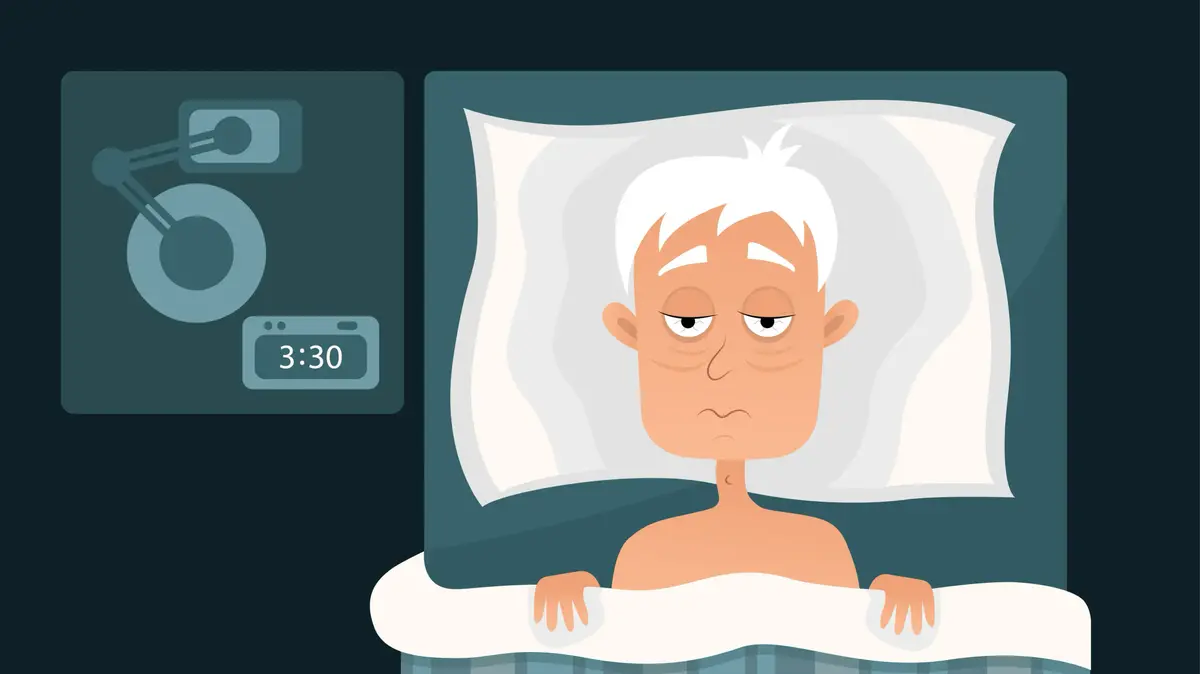health
news
This is what less than five hours of sleep does to your brain
You may think that lack of sleep can only lead to fatigue or confusion, but a new study has found that it may also affect the risk of developing dementia.
How does it work, and what does it have to do with the time it takes a person to fall asleep?
Tags
Sleep
brain
Walla!
health
Tuesday, 23 February 2021, 07:15
Share on Facebook
Share on WhatsApp
Share on general
Share on general
Share on Twitter
Share on Email
0 comments
Those who took more than 30 minutes to fall asleep were at higher risk for dementia.
Illustration of an old woman (Photo: Giphy)
A new study has found that sleeping less than five hours a night can impair brain health and increase the risk of dementia.
The study, published in the journal Aging, found that lack of sleep doubled the risk of Alzheimer's as well as the risk of premature death.
The study was based on 2,610 people aged 65 and over who completed sleep questionnaires as part of the National Health and Aging Studies (NHATS) study in 2013 and 2014.
Researchers from Brigham Hospital in Boston examined respondents' answers to questions related to sleep disorders and drew conclusions from them.
More on Walla!
NEWS
I'm just asking: What happens to our body and mind when we sleep?
To the full article
The researchers examined how participants rated their wakefulness, frequency of naps, how long it took to fall asleep, snoring and the duration and quality of sleep.
Data were also collected over five years on patients' health status, including dementia and death for any reason.
More on Walla!
NEWS
The child is not sleeping enough?
He may be depressed
Get up before the alarm clock: Multiple sleep shortens your life
Until the general public is vaccinated the corona is still here: this is how you will achieve a safe, vocal, comfortable mask that you can breathe with, especially for the period of leaving the quarantine
The experts found a strong link between sleep problems and dementia over time.
The time it takes a person to fall asleep is also linked to the risk of dementia, with those who often took more than 30 minutes to fall asleep facing a 45 percent higher risk of dementia.
go to sleep!
Animation of an awake older man in bed (Photo: ShutterStock)
Multiple naps during the day, struggle to stay awake and poor sleep quality have also been linked to a higher risk of death.
It was previously believed that sleep problems in people diagnosed with Alzheimer's are simply a symptom of the disease.
But the evidence is growing that sleep problems may play a role in the development of the condition.
The study's editor-in-chief, Dr. Rebecca Robbins, said: "Our findings shed light on a link between lack of sleep and risk of dementia.
"
This is not the first time that sleep deprivation, especially on a regular basis, has been linked to many long-term health problems. Conditions linked to chronic sleep deprivation include diabetes, hypertension and heart disease. All of them can directly lead to a shortening of life expectancy. On the other hand, more is not always better. Studies have shown that adults who sleep over 8 hours a day also suffer from poor health.
Share on Facebook
Share on WhatsApp
Share on general
Share on general
Share on Twitter
Share on Email
0 comments


/cloudfront-eu-central-1.images.arcpublishing.com/prisa/7GBYEZIDTZEK7NLSBDHWXQXBFY.jpg)
/cloudfront-eu-central-1.images.arcpublishing.com/prisa/C4BOJCQJZFGPJORE3TOF2IPXME.jpg)



